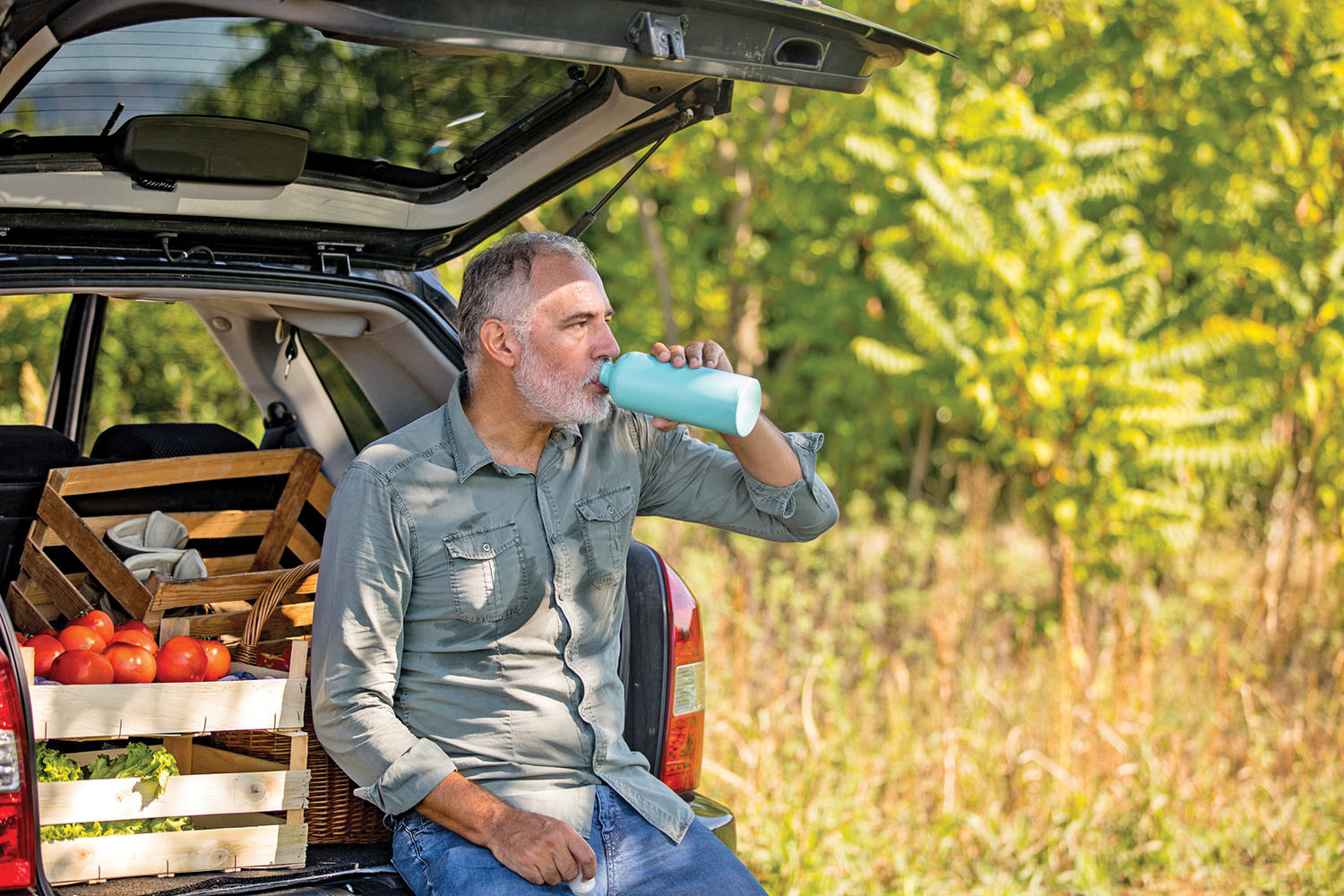Warning: Older age makes you vulnerable to the summer heat
Age-related changes increase your risk for two serious conditions.
- Reviewed by Anthony L. Komaroff, MD, Editor in Chief, Harvard Health Letter; Editorial Advisory Board Member, Harvard Health Publishing

Long, hot summers are getting longer and hotter, and could continue on this path as a result of global warming, according to research published March 28, 2021, in Geophysical Research Letters. Scientists found that autumns, winters, and springs have gotten shorter over the last 60 years, and summers have increased by almost 20 days. Among the many concerns this brings, one is increased risk for heat-related health problems, especially as we get older.
Heat and age
Your ability to function relies on maintaining a core (internal) body temperature. "In a hot environment, your temperature starts to rise. Your body releases heat by sweating and carrying blood away from the body's core to the skin surface, where heat leaves the body. But those functions don't work as well when you're older. Heat can build up, putting organs at risk for severe damage," says Dr. Kalpana Shankar, director of Geriatric Emergency Medicine at Harvard-affiliated Brigham and Women's Hospital.
As you release heat, you also release fluid — not just from sweating, but also through your breath and evaporation through the skin — even when you can't see it. In a hot environment, with a constant need to release body heat, you can become dehydrated. Meanwhile, we're already prone to being dehydrated in older age. "Your fluid intake may be low because of a decreased sensation of thirst and hunger," Dr. Shankar says. "And taking certain medications, such as diuretics, promotes fluid loss."
Yet the body requires fluid to continue releasing heat to lower your core temperature. And so the cycle repeats itself, causing heat to build up quickly inside you.
Heat-related health risks
Heat exposure increases the risk for two serious conditions.
One is heat exhaustion, a warning that you're dehydrated and struggling to cool down. Mild confusion is a common symptom. "You can also feel dizzy and experience excessive sweating, paleness, muscle cramps, fatigue, headaches, thirst, weakness, imbalance, or nausea. Your skin may also feel cold or clammy, and you can feel that you're breathing faster and your heart is racing," Dr. Shankar says.
The other condition is heatstroke, which occurs when the body has completely lost its ability to regulate core temperature. "At this point, the body temperature rapidly rises up to 106° F, and the body can no longer sweat," Dr. Shankar says. "Warning signs include temperatures of 103° and higher, hot and dry skin that is not sweating, a very fast heart rate, severe headaches, passing out, and severe confusion. Heatstroke is a true emergency: without immediate treatment [call 911], it can lead to organ damage and death."
Your daily water needsDivide your body weight (in pounds) by 3 to find out how many ounces of water or fluids you need daily. For instance, a 150-pound person would need 50 ounces or about six cups of fluids per day. "If you're on water pills or your doctor wants you to limit fluid intake, ask how much water you can drink when you're outdoors or you're in a hot environment with limited ventilation or air conditioning," advises Dr. Kalpana Shankar, director of Geriatric Emergency Medicine at Harvard-affiliated Brigham and Women's Hospital. "And increase your water intake if you have signs of dehydration such as dark urine or dry mouth." |
What you can do
Dr. Shankar recommends the following steps to ward off heat-related health problems.
Stay hydrated. Drink lots of water before going outside and then during outdoor activities. Avoid caffeinated beverages and alcohol, which can make you more dehydrated. And remember that you can also get fluids from eating foods high in water content, such as cucumbers, watermelon, lettuce, and strawberries.
Go outside before or after the daily high temperatures. Whether it's your daily walk, yard work, or another outdoor activity, try to do it before or after the sun is high in the sky and temperatures are the hottest.
Dress the part. Wear lightweight and light-colored clothing when you go outside, so your clothes do not absorb the heat. Wear sunblock and sunglasses, too.
Look for the shade. If possible, head for the shade when outdoors or use an umbrella labeled as providing UV protection.
Cool down. Seek air-conditioned environments, take a cool bath or shower, and limit strenuous activity.
Stay alert. "Watch for signs of heat intolerance," Dr. Shankar warns, "and don't be fooled just because you're not sweating. If you have any symptoms, get a cool drink and call for help."
Image: © CasarsaGuru/Getty Images
About the Author

Heidi Godman, Managing Director
About the Reviewer

Anthony L. Komaroff, MD, Editor in Chief, Harvard Health Letter; Editorial Advisory Board Member, Harvard Health Publishing
Disclaimer:
As a service to our readers, Harvard Health Publishing provides access to our library of archived content. Please note the date of last review or update on all articles.
No content on this site, regardless of date, should ever be used as a substitute for direct medical advice from your doctor or other qualified clinician.












